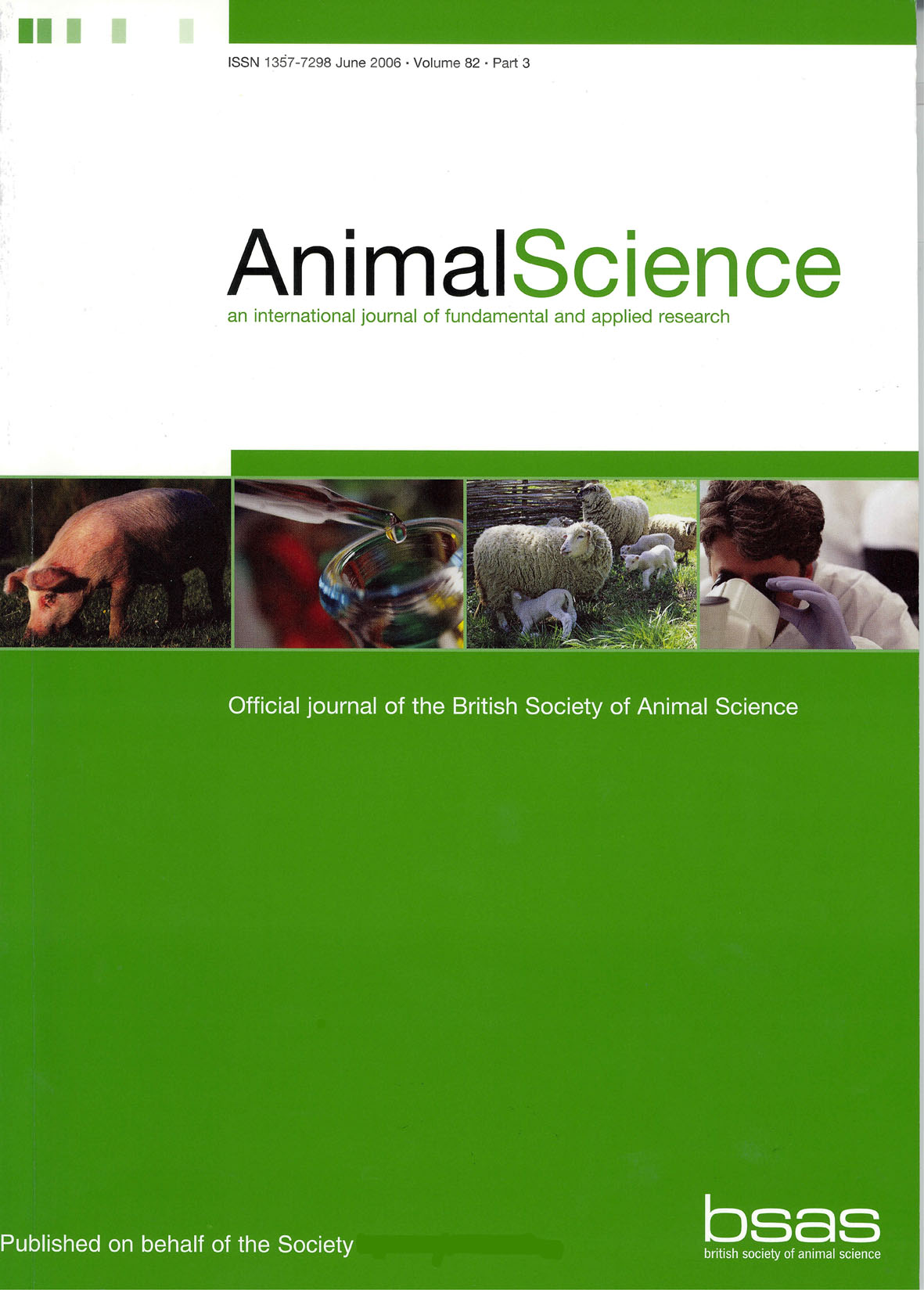Article contents
The effect of dietary protein on metabolite concentrations during fasting in calves differing genetically in dairy merit
Published online by Cambridge University Press: 02 September 2010
Abstract
Eighty calves of both sexes, 4 months of age, of two lines, differing in genetic merit for fat plus protein production by 70 kg per 305-day lactation, were given one of four diets differing in protein content to give an estimated range of protein intakes from 299 to 530 g/day. After 21 days the calves were fasted for 72 h. Samples of blood were taken before and after feeding in the morning and afternoon prior to fasting, seven further samples were taken throughout the fast and five samples were taken ranging from 0·5 to 7·5 h after food was re-introduced. The samples were analysed for concentrations of urea, free fatty acids (FFA), glucose, triglyceride and f5-hydroxybutyrate.
No association between metabolite concentrations and predicted breeding value (PBV) were found at any stage of the trial except for the effect of feeding on FFA concentration, the rate of increase of FFA during the fast and its ultimate concentration. These associations with FFA depended on the sex of the calf and were either absent or less marked in males. The results strengthen the possibility that FFA concentrations during fasting are related to PBV in females, and that sexual dimorphism may explain differing conclusions amongst previous trials.
The magnitude of the estimate of coheritability of urea concentration during fasting with PBV, pooled across experiments, is reduced from -0·193 to -0·066 (s.e. 0·037) by inclusion of these results. However, heterogeneity between experiments is evident and remains to be explained. This suggests that urea concentrations are not consistent predictors of genetic merit and cannot be considered to be reliable for use in practice.
- Type
- Research Article
- Information
- Copyright
- Copyright © British Society of Animal Science 1992
References
- 4
- Cited by


